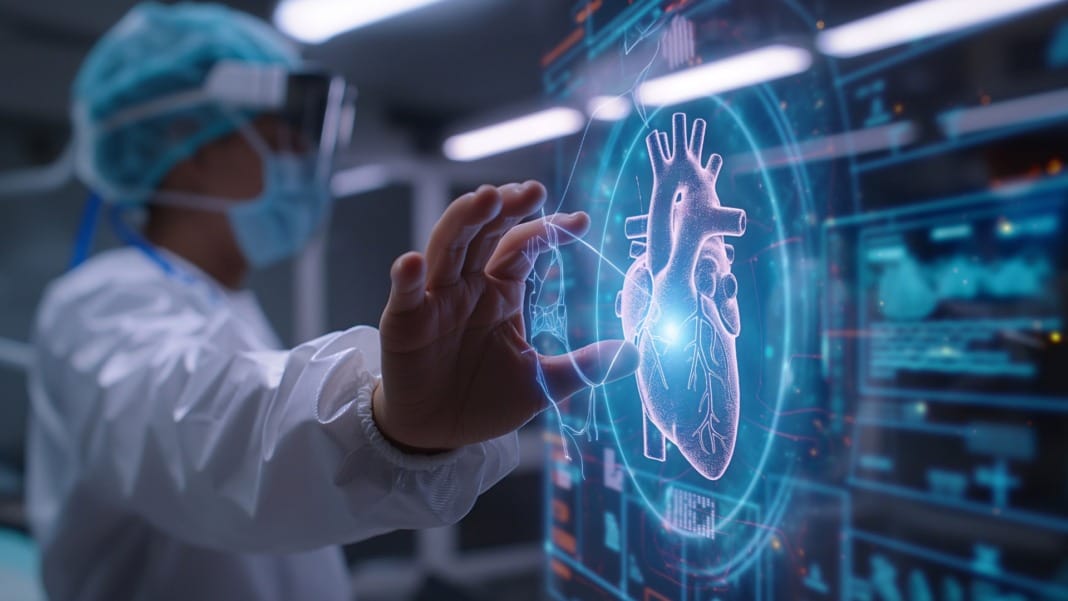OutcomesAI, a healthcare tech startup, has officially launched Glia, the first multi-modal Artificial Medical Intelligence (AMI), aimed at addressing the growing capacity issues in healthcare. This breakthrough technology is designed to help healthcare teams manage administrative tasks and provide insights in clinical workflows. SingHealth, the largest public healthcare provider in Singapore, has been named as the company’s first partner in their collaboration programme.
The healthcare sector has been facing a severe shortage of clinical staff, exacerbating issues such as nurse burnout and the strain on care teams. By 2030, there could be a shortage of 13 million nurses worldwide, with the US alone needing 300,000 more nurses by 2025. To address this crisis, OutcomesAI is developing Glia—an advanced AI that combines Large Language Models (LLMs) and Large Multi-Modal Models (LMMs), specifically designed for healthcare applications.
Glia aims to assist healthcare teams with administrative tasks and patient care insights, making workflows more efficient. “OutcomesAI was established with a mission to build safe and reliable Artificial Medical Intelligence to supercharge healthcare teams,” said Kuldeep Singh Rajput, CEO and Founder of OutcomesAI. He added that the clinical safety and performance of Glia is the company’s top priority, noting that the AI has already passed 25 nursing certifications, with more in the pipeline.
Improving healthcare workflows with AI companions
OutcomesAI has developed AI companions tailored to various clinical roles and specialties. These companions are designed to fit seamlessly into healthcare workflows, assisting with tasks such as triaging, clinical decision-making, scribing, care coordination, and coding. The first step in Glia’s clinical deployment will be in collaboration with the OutcomesAI Collaboratory. This programme will work with leading healthcare organisations globally to test, validate, and integrate these AI companions into specialty care workflows in hospitals, outpatient clinics, and even virtual or at-home care programmes.
SingHealth will be the first healthcare provider to deploy Glia across its institutions. The National Heart Centre Singapore (NHCS) and the National Cancer Centre Singapore (NCCS) are set to integrate Glia into their cardiology and oncology workflows, respectively. These institutions will work closely with OutcomesAI to boost efficiency in their operations and enhance patient care.
Professor Yeo Khung Keong, Deputy Group Chief Medical Informatics Officer (Research) at SingHealth and CEO of NHCS, highlighted the importance of this collaboration in advancing SingHealth’s digital transformation. “Generative AI has tremendous potential to enhance the operational efficiency of our care teams,” he said. “We are leveraging its capabilities to not just improve workflows but to transform the very essence of patient care by improving access, timeliness, and resource optimisation.”
Enhancing patient care with AI-powered navigation
In addition to AI companions, OutcomesAI is developing AI patient navigators. These tools aim to assist healthcare teams with patient-facing tasks, such as intake, follow-ups, and even clinical trial management. OutcomesAI’s founder Kuldeep Rajput noted that these AI solutions go beyond simple text processing, with real-time voice capabilities and complex reasoning built in.
“Generative AI is much more than text processing. The rapid advancement of complex reasoning capabilities of AI and real-time voice technologies offer significant potential for enhancing patient engagement in non-diagnostic settings, such as intake, follow-ups, and even clinical trial follow-ups,” Kuldeep said. However, he stressed the importance of making sure the AI patient navigator is robust enough before it becomes a part of healthcare teams, due to the high stakes involved in patient care.
OutcomesAI’s vision is to use artificial intelligence to address critical healthcare challenges like staff shortages, inefficiencies, and burnout. By deploying advanced AI systems like Glia, healthcare organisations can reduce the administrative burden on their teams, allowing them to focus on what matters most—providing personalised, quality patient care.





